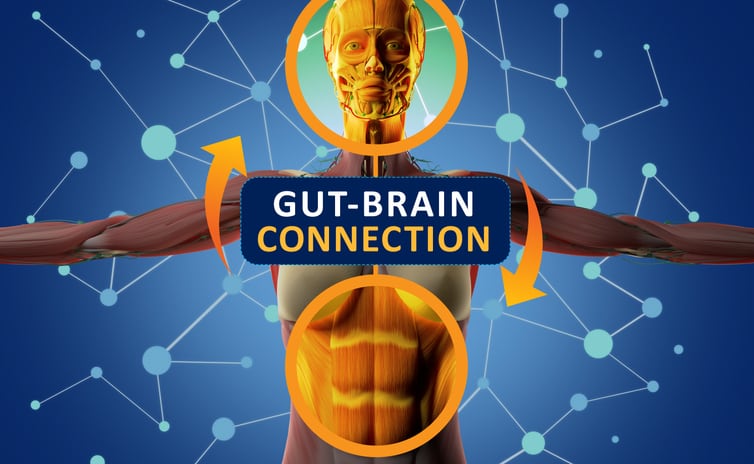Research suggests every disease is somehow connected to the microbiome. For instance, mood disorders are prevalent in patients with IBS and studies have found depressed people have less diversity in their guts. While research is on the right track, the mechanisms behind these findings remain unclear.
Science is only scratching at the surface of the many ways gut bacteria affects our health, however, we do know one thing: there is a lot of talk between the gut and brain — we just don’t always know what they’re saying.
Dr. Dan Gubler joined us to translate. He’s a Caltech-trained natural product chemist, phytonutrient expert and the Chief Scientific Officer at Brilliant Science.
“Hypocrites first postulated in 300BC that there was a link between digestive health and the brain. And we now know that is true,” said Gubler. “Good species can actually give off small molecules like neurotransmitters, serotonin and dopamine, that can travel through the body into the brain and help to increase mood and cognitive function.”
Gubler explained that the body’s main stress hormone is cortisol, and when someone is stressed out, their cortisol levels can get out of whack, impacting anxiety and depression. “Recent research has shown that cortisol can start a signal transduction cascade in the body, a signaling mechanism that leads to genes or chemical switches in the body that can affect good bacteria. And what we now know, one of the biggest things is intestinal permeability. When you have small amounts of good bacteria in the gut, the intestine becomes less permeable so these beneficial small molecules are less able to get through the intestinal barrier and perform beneficial work throughout the body.”
The importance of the gut–brain axis in regulating stress-related responses has long been appreciated, however, we still have a lot to learn about the routes of communication between the microbiota and brain.
“It’s interesting,” noted Gubler. “We know more about the surface of Mars than we know about the good bacteria that live in our guts.”



